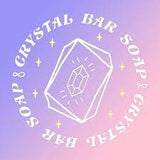A spiritual bath is a practice that involves cleansing your mind, body, and soul using water that has been blessed with intention, herbs, or other ingredients. It is also known as a ritual bath, bath ritual, bath spell, or cleansing bath. The practice has been around for thousands of years and is believed to help facilitate healing and peace for the person taking the bath.
To take a spiritual bath, you should first set your intention and ask yourself what you would like to get out of the bath. Then, you can add ingredients such as herbs, oils, or salts to the water and soak in it for a period of time. The actual practice may vary depending on the person and their beliefs.
Travel Back To Learn The History Of Spiritual Baths
The history of taking spiritual baths dates back to ancient times and has been a part of many religious traditions throughout history. For example, the ancient Romans had public thermae baths that had social significance. In Islam, ritual baths are called Far’d Ghusl and are performed after specific events, such as sex or the death of a loved one. In Judaism, the ritual bath is called a Mikvah and is a meaningful practice for purification. Spiritual baths are also used in Hinduism, Christianity, and Paganism. The key to drawing a spiritual bath is to couple bathing with intention.
Ingredients to use in your Spiritual Baths
Ingredients used in spiritual baths can vary, but some common ones include moon water or water that has been blessed, organic plant-based scents, and bath-safe herbs like agrimony, arnica, angelica root, bay leaves, cedar, eucalyptus, fern, hyssop, and juniper. Essential oils like sage, frankincense, and gardenia can also be used. Natural salt is an important ingredient for cleansing baths, but table salt should be avoided. Other ingredients that can be used include dried jasmine flowers, rose petals, seashells, blue food coloring, and incense.
How To Take a Spiritual Bath
To take a spiritual bath, you should first set your intention and ask yourself what you would like to get out of the bath. Then, you can add ingredients such as herbs, oils, or salts to the water and soak in it for a period of time. The actual practice may vary depending on the person and their beliefs.
Different types of rituals used in a spiritual bath
-
Infusing your bath with intention, such as playing music
-
Using purifying salt soaks with essential oils
-
Taking a cleansing bath with a spiritual purpose, also known as a ritual bath, bath spell, or bath ritual
-
Taking a bath for prosperity, earning more money, love romance, or negativity removal
Taking a spiritual bath involves several steps, which are as follows:
- Set your intention: Determine what you want to achieve from the bath and what your body, mind, and spirit need. Set the intention that the bath will help facilitate healing and peace for you.
- Choose your ingredients: Select the herbs, oils, or other ingredients that align with your intention. For example, you can use rose petals for love or lavender for relaxation.
- Prepare your bath: Fill your bathtub with warm water and add your chosen ingredients. Pay attention to the temperature and make sure it's comfortable for you.
- Cleanse your space: Remove clutter, dust, and let in fresh air. Mop your floors with a cleaning floor wash, call upon your deities or spirit guides, and play music. Pay particular attention to creating a peaceful and relaxing environment.
- Get in the bath: When you're ready, get in the bath and soak for at least 20 minutes. Visualize your intention and allow the ingredients to work their magic. You can also meditate or recite affirmations during this time.



Leave a comment